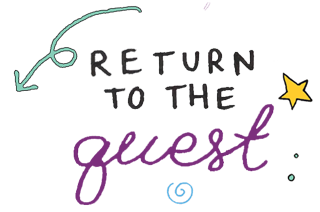
Nefarious news
| Objective: To make your views on the concept of information shine by presenting a fake news bulletin! |
Duration: 30 to 60 minutes
Material:
- Pencils, markers, eraser
- Sheets of paper
- Cardboard
- Optional: props
Instructions:
Prepare your fake news. In this activity, your mission will be to present a fake news bulletin to your audience. To do this, you will have to invent at least three fake news stories. To strike a balance between making your audience laugh and making them think, you can choose to present some plausible news, that is, news that could almost be true, and some ridiculous news that are obviously false. You can alternate between positive and negative news. It might also be interesting to choose some ambiguous news, which your viewers will have to think about. To help you get ideas, think about the different contexts that news reports usually talk about (politics, health, education, the environment, leisure, etc.). Write your ideas on a piece of paper. This will serve as a teleprompter of sorts when you present the news!
- Inspiration: Here are some examples of fake news to inspire you: lunar panels, a promising yet potentially dangerous technology, have just been invented in Vietnam; a 2-year-old child broke the world record for the Rubik's cube in Paraguay... while learning to swim; an agreement has been reached between Syria and Iraq to fairly share the water of the Euphrates River; a Canadian school is being turned into a cooperative led by children.
- Variation: If you want to play a trick on your audience, insert a news item that’s actually true (which you can find on a newspaper's website) among your fake news. At the end of the bulletin, ask the audience what they think is the news item that’s true!
- Prepare the set for your show. Now you'll have to recreate the atmosphere of a real TV bulletin. To look as professional as possible, dress up with your own clothes or your parents' (with their permission). You can even make a tie or some other fancy accessory out of paper or cardboard. The stage on a television set is often sober: a table with a stool, facing the camera, or in your case, the audience. You can also draw the logo of your imaginary show and display it behind you while you present the news. Finally, many television hosts have a catchphrase, which they repeat at the beginning or the end of each show. Make up your own!
- Present your show. When everything is ready for the show, invite your family members to sit down and watch your fake news bulletin.
- Think about fake news. Was it easy or hard to present a fake news bulletin? Together with the members of your audience, think about the following questions: how do you know if a news item is true or false? Is it better to trust the experts or should you check everything yourself? But... maybe you should ask yourself what an expert is? Can it be dangerous to be too gullible, i.e. to believe things very easily? And what about being too skeptical, i.e. believing things with great difficulty? Hmm... what is good information really?
...
Bonus: If your creative juices are still flowing, here's another assignment: together with your family, improvise a game show called Novelty Night. The idea is simple: candidates are asked general knowledge questions, but when they answer, the answer has already changed! This may be because a recent scientific discovery has changed the answer to a well-known question (for example, it was recently discovered that there is water on Mars, or that most dinosaurs had feathers), or because the answer is bound to change (for example, the answer to the question, "What time is it, to the nearest second?" is constantly changing). Finally, puzzle over the following questions together: how often should we check that our knowledge is still "up to date?" Is it necessary to constantly keep up with the latest news? Is all our knowledge only provisional? Why or why not? |

| Tricks for tots: If you prefer, instead of presenting a fake news bulletin, you can become a reporter doing a live TV interview with your family members, who will pretend to be the guests. But here's the rub: when they answer your questions, your guests have to lie! These lies can be made with bad intentions, for example, if a guest claims that they didn’t do something bad that they actually did, like stealing money or letting oil flow into the sea. But these lies can also be well-intentioned, for example if another guest is a scientist who lies about the whereabouts of a Java rhino to protect it from extinction. These lies can even be ambiguous, i.e. their impact is not clear: a scientist lying about the danger of a virus so as to not worry people, for example. As an investigative journalist, don't hesitate to ask the guests more questions to force them to make up more details... or even to admit their lies. When you’re done with the interviews, think together about the following questions: is lying always a bad thing? Is it sometimes better not to know something than to know it? Do some people have more of a right to lie than others? Why or why not? |
| Tips for teens: In an influential book, the philosopher Harry Frankfurt claimed that "B.S." was more dangerous than lies. He defined B.S. as a form of communication aiming to persuade with no regard for facts or the truth: for example, a political leader claiming that a drug works without knowing anything about it, to appear in control or competent. A liar, on the other hand, must care about truth and facts: for example, someone who lies to make us believe that a drug is effective must know that it is in fact not effective, and strive to make the lie look like the truth (e.g., by fabricating false evidence). So lies don’t challenge the importance of the truth: they simply try to pass themselves off as the truth. Consequently, as soon as a lie is shown to be false (e.g. by making more tests), the lie loses its power of persuasion. The danger of B.S. is that it makes the truth irrelevant: even if B.S. is shown to be false, it can continue to have an effect, since it is not necessarily connected to the truth (people can thus continue to trust the leader in the previous example). Furthermore, if B.S. is widespread in a society, as it is in ours according to Frankfurt, its members may lose sight of the importance of truth in general, which the philosopher sees as a great danger. What do you think of all this? Is B.S.ing worse than lying? Can someone who doesn't tell the truth still be trustworthy? Do we really need the truth? Why or why not? |
Share your creative reflections by sending them via email.
Include photos of your projects and notes of your thoughts, as well as your first name and your age!


